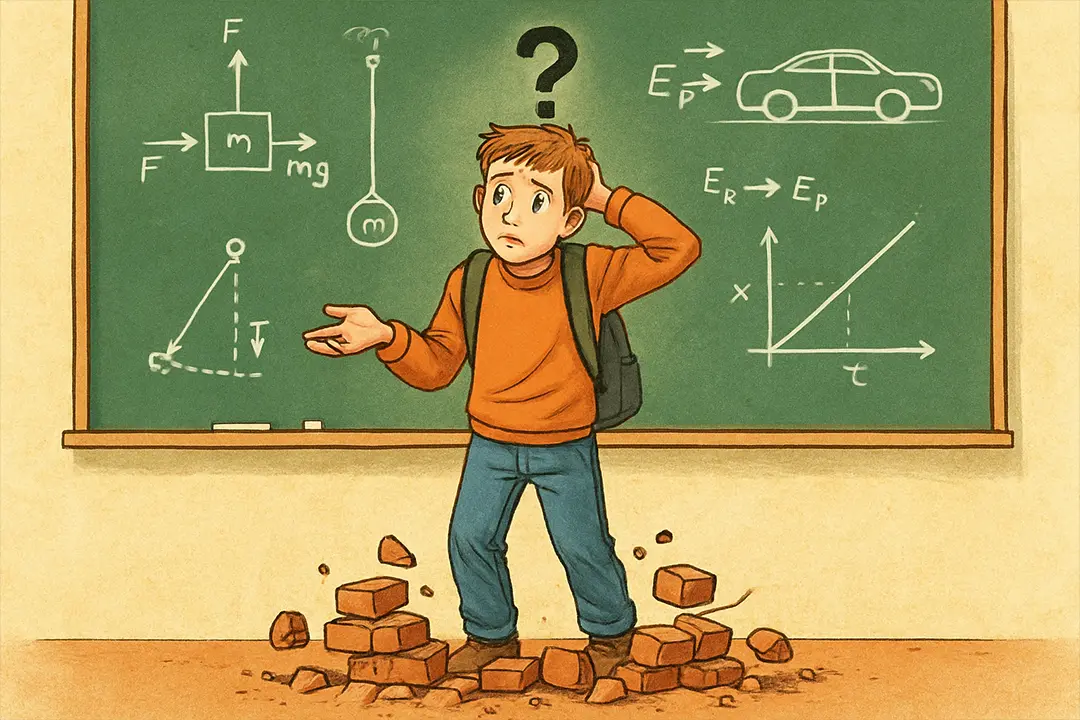O Level Physics is a subject that requires a balance of conceptual understanding, critical thinking, and consistent practice. However, many students unknowingly fall into traps that prevent them from reaching their full potential. In this blog, we will explore the most common mistakes students make in O Level Physics and provide practical strategies to overcome them. This guide combines expert advice and insights from various educational platforms, including Physics Academy, Ace Academia, Geniebook, Sophia Education, and others.

1. Cramming at the Last Minute
One of the biggest mistakes students make is trying to cram all their physics content a few days before the exam. Physics is a subject that builds upon understanding and logic. Cramming can lead to surface-level knowledge and increased anxiety.
How to Avoid It:
- Start revision early by creating a weekly study schedule.
- Use active recall and spaced repetition methods.
- Review class notes regularly instead of saving everything for the last week.
2. Weak Foundation in Basic Concepts
Many students struggle with advanced topics because they never fully understood the basics taught in earlier grades. Without a solid foundation, grasping higher-level physics becomes increasingly difficult.
How to Avoid It:
- Revisit lower secondary physics concepts such as forces, energy, and motion.
- Use visual aids like diagrams and mind maps.
- Seek clarification from teachers or tutors on unclear topics.
3. Misinterpreting Questions
Students often misread or misinterpret exam questions, especially when under pressure. This leads to writing irrelevant answers or missing key points.
How to Avoid It:
- Practice reading and understanding command words (e.g., describe, explain, compare).
- Underline or highlight key parts of the question.
- Paraphrase the question to ensure you fully understand it before answering.
4. Over-Reliance on Rote Memorisation
Memorising definitions and formulas without understanding the underlying concepts is a common pitfall. Exams often test application rather than memorisation.
How to Avoid It:
- Focus on understanding the 'why' behind each formula or law.
- Use real-life examples to contextualise concepts.
- Teach others what you've learned—this reinforces understanding.
5. Inadequate Practice with Application-Based and Data Questions
Physics exams frequently include application-based questions and data interpretation. Students who haven't practised these types of problems may panic during the exam.
How to Avoid It:
- Include graph and data analysis exercises in your revision.
- Solve real O Level past papers regularly.
- Time yourself to get used to exam pressure.

6. Poor Time Management During Exams
Running out of time or spending too long on one question is a frequent mistake. This often results in leaving questions unanswered.
How to Avoid It:
- Allocate time per section or question.
- Move on if you're stuck; return to difficult questions later.
- Practice under timed conditions to improve pacing.
7. Illegible Handwriting and Poor Presentation
Even if your answer is correct, poor handwriting or disorganised structure can cost you marks. Examiners must be able to read and follow your logic.
How to Avoid It:
- Practice writing clearly and neatly.
- Use bullet points or numbered steps where appropriate.
- Leave space between answers for easy readability.
8. Neglecting Practical Skills and Experimental Questions
Some students overlook practical-based questions, assuming they are less important. However, these questions are often straightforward and can earn easy marks if prepared for.
How to Avoid It:
- Understand the scientific method and common lab equipment.
- Review practical worksheets and past practical exam papers.
- Practice drawing and interpreting experimental diagrams.
9. Not Seeking Help Early Enough
Waiting too long to ask for help can leave students stuck in confusion. This hesitation often stems from fear of looking weak or behind.
How to Avoid It:
- Ask questions in class or during consultation hours.
- Join study groups to learn collaboratively.
- Hire a tutor if you're consistently struggling with certain topics.
10. Skipping Marking Schemes and Examiner Reports
Many students don't take the time to study marking schemes or examiner feedback. These tools provide insights into what examiners expect.
How to Avoid It:
- Review the official marking scheme after completing a past paper.
- Analyse sample answers to understand scoring techniques.
- Learn from examiner reports to avoid common pitfalls.
Final Thoughts
Success in O Level Physics isn't about being a genius. It's about smart preparation, consistency, and awareness of the common mistakes that derail students. By recognising and addressing these issues early on, you can significantly boost your performance.
Remember, Physics is not just a subject to pass—it trains you to think logically, solve problems, and understand the world around you. Mastering it at the O Level lays the groundwork for success in higher education and beyond.
Action Steps:
- Create a realistic revision plan today.
- Identify your weak areas and focus on them first.
- Practice, evaluate, and repeat.
FAQs
A: Ideally, dedicate at least 1 to 1.5 hours daily to Physics, especially during revision periods. Break this time into concept learning, problem-solving, and past paper practice.
Q2: What are the best resources for O Level Physics practice?A: Use a mix of school textbooks, topical practice books, past year exam papers, and online platforms like PhysicsAcademy.sg and Geniebook.
Q3: How do I handle topics I constantly forget?A: Use spaced repetition apps like Anki, create mind maps, and regularly review weak topics to strengthen long-term retention.
Q4: Are practical questions really that important in Physics exams?A: Yes, practical questions can be scoring opportunities. They test understanding of experimental setups, data collection, and analysis—core skills in physics.
